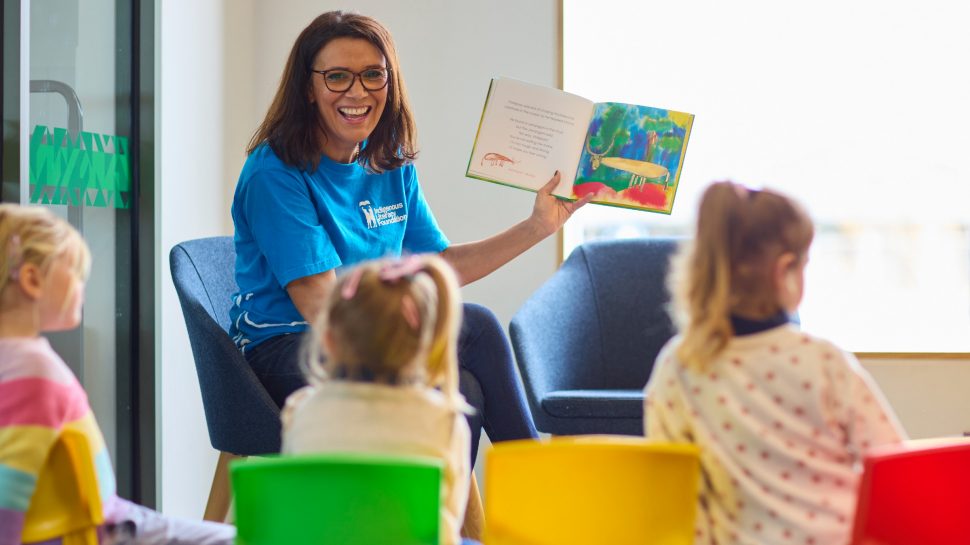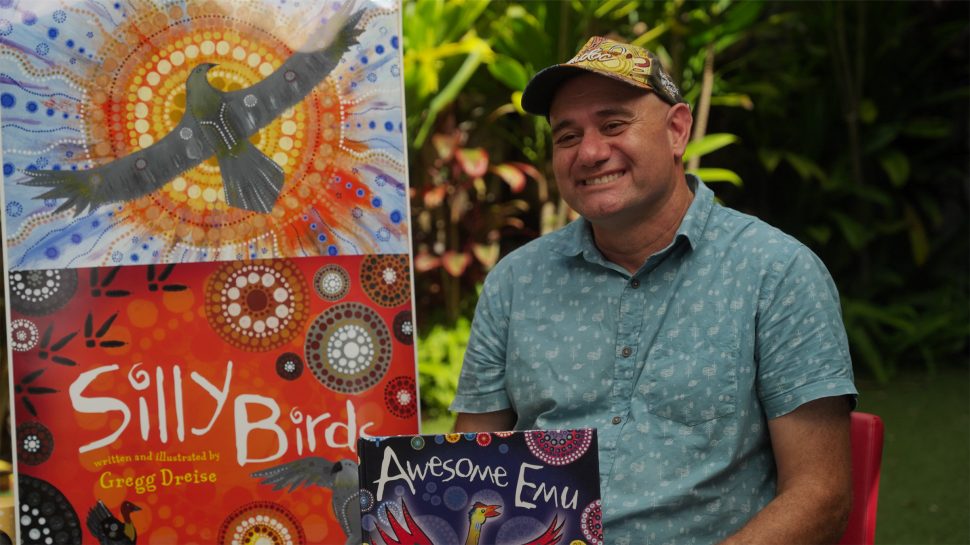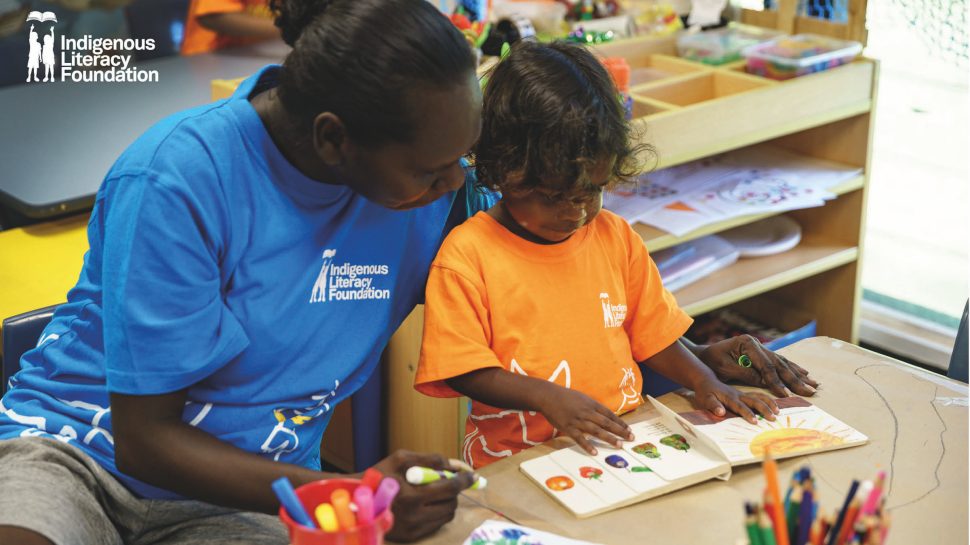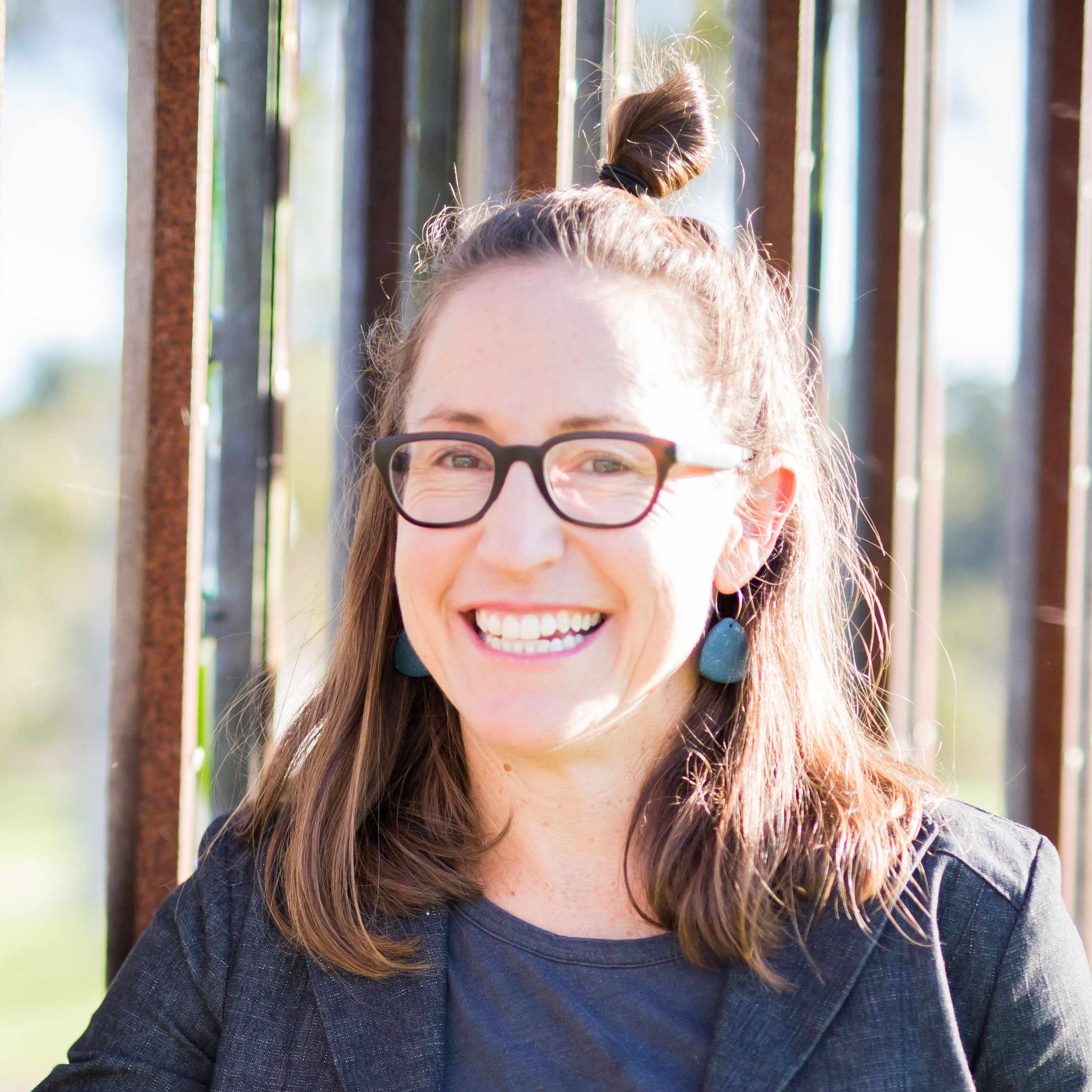“This generosity is changing lives”: Shelley Ware on football, storytelling and the Indigenous Literacy Foundation
Teacher, journalist and AFL media presenter, Shelley Ware is passionate about helping Aboriginal and Torres Strait Islander people tell their stories and see themselves in other people’s stories. Here’s her story.
For someone who loves stories and storytelling, Shelley Ware has an impressive backstory of her own. The proud Yankunytjatjara/Wirangu woman, who lives on the lands of the people of the Kulin Nation, is a devoted mother. An impassioned educator. An inspirational journalist. And a rather talented basket weaver.
When she’s not at the beach with her son or in the classroom with her students, Shelley can be found hosting her own web show Ware2Now?, appearing on the ABC’s Outer Sanctum podcast, writing a footy column for the Koori Mail … the list goes on. She’s also a proud Ambassador of the Indigenous Literacy Foundation (ILF), where she is actively involved in the flagship Community Publishing Program, The Create Initiative.
We recently sat down with Shelley for an engaging conversation about what inspires her. Her first words? “I find inspiration from my Elders, I find inspiration from the world that I live in, and I mostly find inspiration from my child and the future that he wants for himself.”
That said, it soon became clear that a number of other topics are close to her heart, too. Here’s what else inspires her.
1. Creating stories with students through ILF’s Create initiative
Empowering Indigenous students to believe in their own voices is one of the most personally rewarding things that Shelley does. Through her involvement in the ILF Create Initiative—which connects senior school students with publishers and mentors in an intensive three to five day workshops to write and publish a book —Shelley helps students bring their voice, stories and imagination to life in a book.
Over the past few years, in partnership with fellow ILF Ambassador and author David Lawrence, Shelley has helped students publish a trilogy called Japarrika, about an Indigenous AFLW player. “The most beautiful part of this experience is seeing the girls grow in confidence over a period of three years. One beautiful soul was extremely shy and wouldn't read out loud. Initially, she didn't want to participate in the actual writing, but by our third year, she wrote a whole chapter herself,” she says.
“Everybody feels inspired and a part of the book. It’s a really special thing to be involved in, to see these young women become authors and believe in themselves.”
With the Japarrika trilogy now published, Shelley’s turning her attention to the next round of Create that’s coming up in Sydney in early 2023. The program, supported by Australia Post, will give a new group of students from the Yirrkala in North-East Arnhem Land the opportunity to speak up and be heard.
2. Helping embed Aboriginal and Torres Strait Islander history and culture in classrooms
As a specialist educator, Shelley has focused her skills and knowledge on developing new curriculum resources to help teachers embed Aboriginal and Torres Strait Islander history and culture in their classroom. She also supports educators as a consultant to help them feel confident to deliver this curriculum on their own.
“It’s vital for children to have a strong connection to their culture, and to feel a sense of pride. If they are reading, engaging in, and learning about Aboriginal and Torres Strait Islander history and culture in the classroom, that’s exactly what's going to happen. The classroom is often their starting point for growth and connection to the oldest living culture in the world,” she says.

Empowering Indigenous students to believe in their own voices is deeply rewarding for Shelley.
3. Sharing her love of AFL with all Australians
Aussie Rules is a huge part of Shelley’s life. She has been involved in the game for over 25 years, on the media side of the field.
“I love watching people’s dreams come true—particularly when they’re running out onto the field for the very first time,” she says. “You've got your supporters, who are brilliant human beings that are excited and love the game, and you've got your media community and you've got the actual team themselves. Footy brings people together.”
Shelley brings a female’s perspective and an Indigenous voice to the game. When talking about football on television or writing about it for her column, she makes a point of celebrating the Aboriginal and Torres Strait Islander players who may otherwise be side-lined in the conversations.
As she says, “It’s really important for people to hear the perspective of First Nations football players. Too often, people think it’s just black magic—that the players were born with the skills. But, like anyone, they’ve put in the hard work. They’ve made sacrifices, and their families have too.”
4. Bringing books written by First Nations authors to remote Communities
As part of her work with the ILF, which is all about providing culturally relevant books to remote Communities across Australia, Shelley proudly adds that more than 45% of the books feature First Nations authors and/or illustrators.
“I grew up never seeing myself in a book, ever. When I see these children see themselves in a book or they see their language in a book, there’s a glow within them. A sense of pride and an instant connection, and that's what you want for children when they're reading,” says Shelley.
Australia Post proudly supports the ILF by delivering these books to remote First Nations Communities. More than 300,000 books have been delivered to 356 remote Communities since the partnership began in 2020 as part of ILF’s Book Supply program. As Shelley says, “This generosity is changing lives.”
And she’s effusive in her thanks. “I want to thank the Australia Post team for all the fantastic work you do with ILF, for remote Communities and for wider Australia. We are so grateful for your support of ILF—thank you, thank you, thank you.”
Australia Post proudly supports Indigenous literacy
Australia Post proudly supports Indigenous literacy
We work with the Indigenous Literacy Foundation on several initiatives, including one of the 2022 Create Programs for students from the Yirrkala Community from North-East Arnhem Land.



